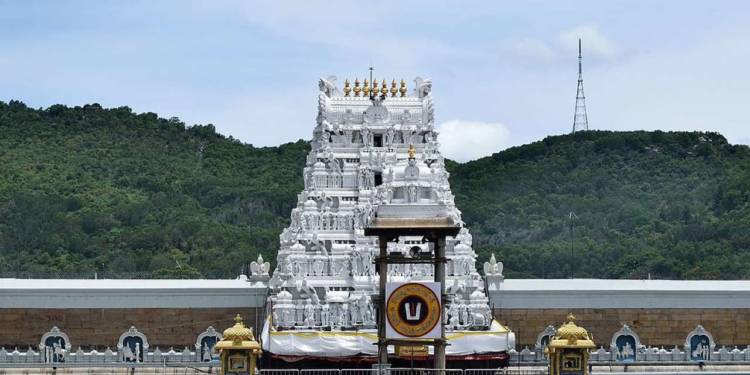Tirumala Tirupati Devasthanams (TTD), the trust which manages Tirumala Venkateswara Temple at Tirumala, Andhra Pradesh, has cleared the proposal of UP government and Union territory of J&K proposal, to build Bhagwan Balaji temples in the respective states.
The temple in UP will be built in the holy city of Varanasi, which also happens to be constituency of PM Modi, while the other temple will be built in the city of Jammu. “Both the governments of Jammu & Kashmir and Uttar Pradesh gave us proposals requesting to construct Lord’s temple wherein appropriate lands will be provided by the respective states,” said Chairman of the board, YV Subba Reddy.
A few months ago, when YV Reddy, who is uncle of incumbent chief minister of Andhra Pradesh- Jagan Mohan Reddy-, was appointed to the position of chairman of the trust, there were questions over his religious affiliation. Given the fact Jagan is devout Christian, there was apprehension among the devotees that YV Reddy might be Christian and try to harm the Hindu interests as the chairman of the board.
Many devotees raised questions on social media, and this became a big issue. To the controversy over his religious affiliation, YV Reddy replied, “I was born a Hindu and I will die a Hindu. These allegations and smear campaign against me hurt me deeply.”
“Every year, I go to Sabarimala and every few months, I go to Shirdi. Tell those who are spreading such news to visit my residences in Hyderabad or Ongole. Let them see what kind of rituals we do. There is no merit to that baseless rumour,” he added.
So far, he has proved his Hindu credentials by working in the interest of the temple. In an ideal situation, none of the Hindu religious places should be controlled by the government and they should be managed by devotees, but almost all the state government, including that of BJP, has taken over the prominent temples of the state.
Therefore, all that Hindu activists and devotees could do is, to remain vigilant over the governance of the temple, and work the demand for free temples. The religious places of Muslims and Christians are managed by the followers, and the same should happen in the case of Hindus.
It is important to note that, the Hindu temples are among the richest religious sites in the world. Given the generosity of Hindus for the religious causes, the Hindu temples have depository of billions of dollars of wealth.
In financial year 2019-20, the revenue of TTD was 3116.25 crore rupees, which makes it the richest temple in the world in terms of revenue. The revenue through Srivari Hundi (offerings – daan peti) was alone estimated at 1,280 crore rupees. The annual revenue of TTD is almost half of the annual expenditure of the union territory of Pondicherry.
The temple receives more than 50,000 daily visitors while the annual estimate is more than 2 crore per year, which is more than double of the number of visitors received by Vatican- the holy site of Roman Catholic Christians- every year.
”Pilgrims come from Tamil Nadu, Karnataka, Andhra Pradesh, rest of the country, even abroad from London, Singapore. 5-10 per cent of daily visitors are from outside,” said an official from the temple.
In ancient India, the ruling regimes used to have minimal control of the religious sites, and therefore, the temples were not only the venues of religious gathering, but they also played the role of proto-banks, and lend to the traders. And this was the source of immense wealth of the temples.



























